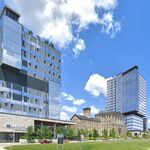OolloO
New Member
Since 2008 I've been slowly purchasing properties with my last one being purchased in November of 2013. On the last (4th) home, the banks were very reluctant to provide a mortgage loan, although, somehow I managed to find a willing bank through a mortgage broker. My investment style is to buy with usually 20% down, rent and hold. After the 5 year mortgage term is up, I refinance, pay off debts, myself and reinvest.
I have a real estate license and practice part-time. I don't advertise and mainly have the license to purchase property for myself and help the occasional client (acquaintances). The problem I have is I usually find very attractive (appreciation, rental income, etc...) homes when showing clients. They are usually not interested in these homes for reasons they cannot see beyond. I'm interested in purchasing these home at a discounted price, easily correcting these issues and renting it out (cash flow positive). With the minor renos I usually get 10%-15% instant appreciation and I do see further appreciation over the years due to infrastructure and amenity improvements I look for when purchasing. With the last home I got two rental offers the day after I posted the house for rent. I've only lost approximately a month of rent in the 6 years I've been doing this for one house.
I now doubt I can get a home on my own, but I do know individuals who are interested in investing with/in me and I have no idea on how to approach this. I was actually surprised to have people offering me capital for my 'next' venture. What would be the best approach if I were to obtain private investors?
I would like to
From an accounting point of view, should I create a corporation? Limited Partnership? Or purchase the home as tenants-in-common?
What tax advantages/disadvantages are associated with each one?
Do I need to provide personal income when applying for a mortgage when incorporated\limited partnership?
Any advisors I can get in touch with? On this message board?
Essentially, what is the best model when obtaining outside investment for real estate?
Note:
By minor improvements/renos I mean
I do read the other threads and I am fully aware of the opinions for an eminent bubble burst. I do, somewhat, look forwards to a burst as it would provide a better opportunity to pick up some more homes at a discount.
I have a real estate license and practice part-time. I don't advertise and mainly have the license to purchase property for myself and help the occasional client (acquaintances). The problem I have is I usually find very attractive (appreciation, rental income, etc...) homes when showing clients. They are usually not interested in these homes for reasons they cannot see beyond. I'm interested in purchasing these home at a discounted price, easily correcting these issues and renting it out (cash flow positive). With the minor renos I usually get 10%-15% instant appreciation and I do see further appreciation over the years due to infrastructure and amenity improvements I look for when purchasing. With the last home I got two rental offers the day after I posted the house for rent. I've only lost approximately a month of rent in the 6 years I've been doing this for one house.
I now doubt I can get a home on my own, but I do know individuals who are interested in investing with/in me and I have no idea on how to approach this. I was actually surprised to have people offering me capital for my 'next' venture. What would be the best approach if I were to obtain private investors?
I would like to
- maintain full control of decision making
- if possible, exceed the standard 5%-6% property management fee from rental income. The problem is that the houses in Toronto are usually 50+ years old and need a couple years of close attention before they become self sufficient.
- be compensated for the renos that take quite a bit of effort to manage
- be compensated for the renos I do myself
From an accounting point of view, should I create a corporation? Limited Partnership? Or purchase the home as tenants-in-common?
What tax advantages/disadvantages are associated with each one?
Do I need to provide personal income when applying for a mortgage when incorporated\limited partnership?
Any advisors I can get in touch with? On this message board?
Essentially, what is the best model when obtaining outside investment for real estate?
Note:
By minor improvements/renos I mean
- Extremely dated bathrooms
- Disastrous paint jobs (murals everywhere)
- Oil furnace conversions
- etc...
I do read the other threads and I am fully aware of the opinions for an eminent bubble burst. I do, somewhat, look forwards to a burst as it would provide a better opportunity to pick up some more homes at a discount.




